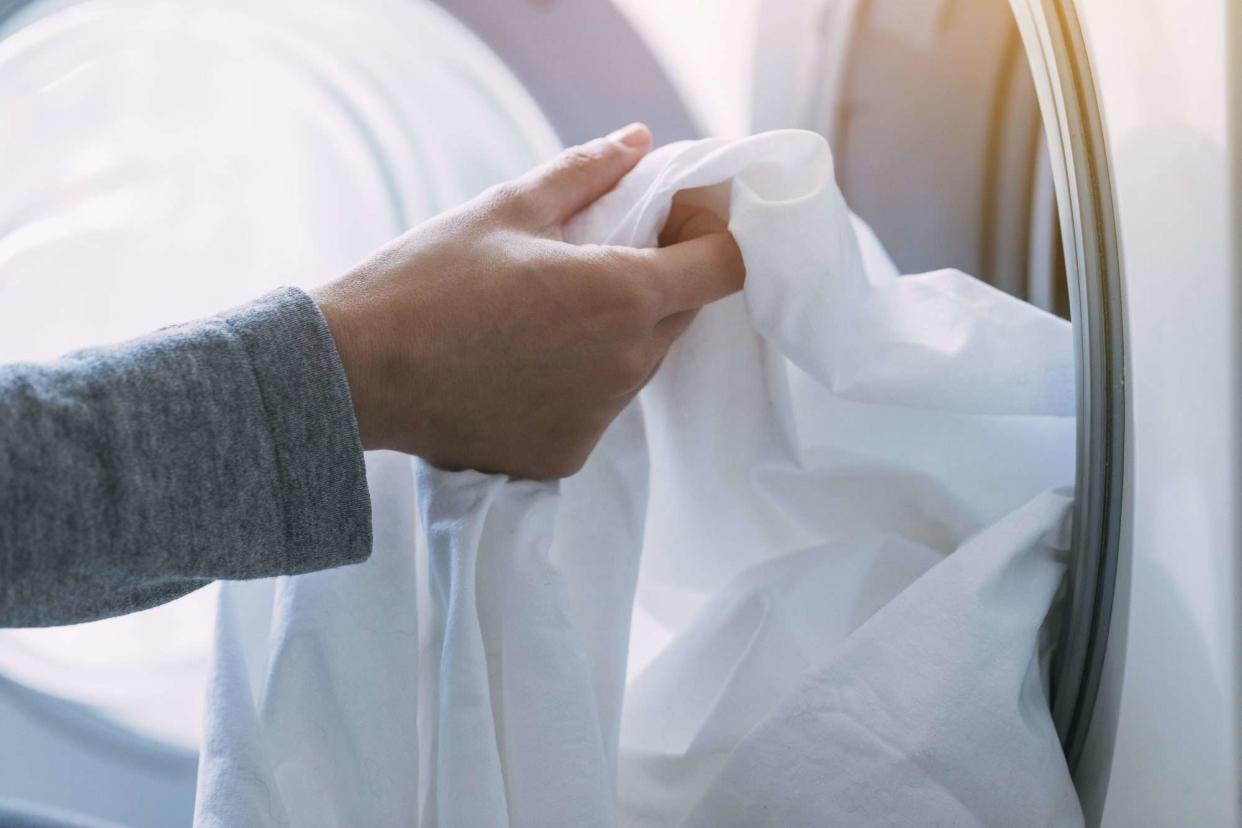How often should you wash your sheets?
Doing laundry is a highly polarizing chore: you either love to care for your linens or you procrastinate every chance you get. However, there are certain items that need routine washing to stay in tip-top shape, and our sheets are one of the most important. We asked linens expert Marissa Murphy of Palm Beach's Pioneer Linens and cleaning expert Hailey Becnel of @thecleaningchannel to share their best advice for caring for your sheets—and why it's so important to stick to a schedule.
How Often Should You Wash Your Sheets?
"In my home washing sheets is a weekly task," Becnel says. "I do this every Sunday to all the beds in the house so I never forget, and there's nothing better than climbing into bed with clean sheets on a Sunday evening to fight those 'Sunday Scaries.'"
Beyond the allure of having freshly cleaned sheets to start your week off right, Becnel says that there is so much hiding on our sheets that is missed by the naked eye. According to UC Santa Barbara, humans lose approximately 500 million skin cells a day, and when we spend a fourth of our day asleep, that's a whole lot of shedding that occurs on our sheets. Plus, Murphy notes that oils, lotions, and creams that we use before bed can seep into sheets and pillowcases which will have a negative effect on our skin, especially if you're going for prolonged periods between washes.

Getty Images
"Dead skin cells will attract dust mites, which are a huge trigger for allergy sufferers," says Becnel. "Plus, you may not realize how much sweat, drool, pet hair, and dust can accumulate in a week on your sheets. Save yourself the stuffy nose and wash those sheets weekly."
Additionally, Murphy notes that it's not only better for our health to get into a weekly washing routine, it's better for our linens—which is of the utmost importance if you have invested in a luxury brand that you expect to last for years to come.
"Another reason to launder your linens weekly is that the dirt and dead skin cells that build up on your sheets and pillowcases get into the cotton fibers and cause the cotton thread to break down," says Murphy. "This will cause your sheets to have pilling."

Annie Schlechter; Styling: Page Mullins
Tips for Washing Your Sheets
Murphy also advises that people wash their sheets properly, ensuring that all the detergent gets out of the linens during the wash cycle. As washers have become more efficient and detergents more concentrated, you may not need to use as much as you think to get your linens fresh and clean. In fact, using too much detergent can have a negative effect on your sheets, towels, and clothing, Murphy says, as they can cause these items to feel stiff and lose the texture and quality that attracted you to purchase them in the first place. Plus, this build up will prevent your laundry from smelling totally clean—especially if you're washing several sets of sheets in one load.
If your sheets don't feel as crisp or sumptuous as they did when you first purchased them, consider putting them through an extra rinse cycle or two to encourage the removal of built-up detergent the next few times you wash them. Murphy also advises steering clear from heavily scented detergents with additives that can irritate the skin and create further build-up on your linens. Pioneer Linens sells detergent brands like The Laundress and Le Blanc that use nontoxic and allergen-free scents that are naturally derived to give you the best of both worlds.
